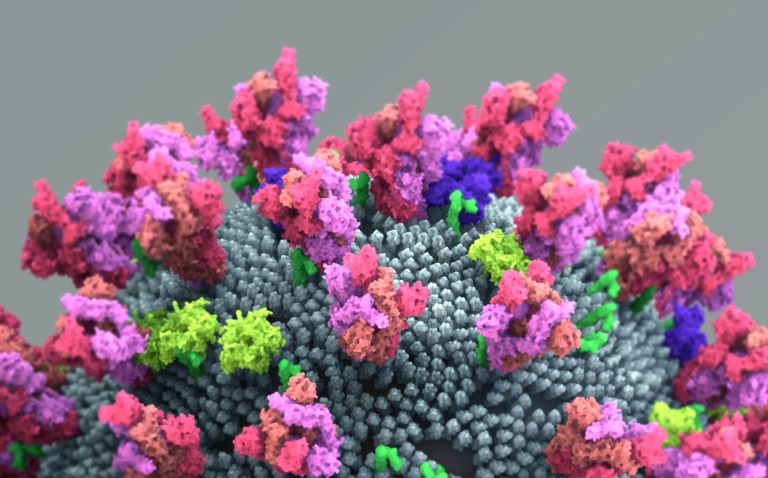The emergence of mutant strains of COVID-19 is not unusual but ongoing monitoring of variants is important to ensure that vaccines remain effective against any new forms.
There is strong evidence to show that COVID-19 gains entry into cells via attachment of the spike protein and it is this site of the virus which is targeted by vaccines. The spike itself consists of two units, the N-terminal S1 and the C-terminal S2 subunits. The receptor binding domain (RBD), which interacts with the human angiotensin converting enzyme 2 (ACE2), is located in the S1 subunit whereas the S2 subunit, enables fusing of the viral and host membrane to allow entry into a host cell. It seems that variations in the RBD, in particular a mutation at a site known as N501, appears to enhance the binding of COVID-19 to ACE2 and thus increase transmissibility of the virus. Moreover, spontaneous mutants that possess variations in the spike protein may hamper the development of neutralising antibodies and thus the protective effect of vaccines.
Sensing the importance of identifying and monitoring the development of mutant strains, a team from Gutenberg University, Germany and researchers from BioNTech (who have already produced a vaccine), decided to analysis genomic assemblies to detect spike protein mutations and the effect on potential antibody binding sites. The team used existing genomic databases to detect non-synonymous (or spontaneous) mutations in the spike protein and examined the impact of these changes on the potential for antibody binding sites.
Findings
In a sample of 146,920 genomic sequences, only 13.6% (20,248) contained the wild-type or original, spike protein. The mean number of mutations had increased over time from December 2019 to September 2020 from 0.14 to 1.98 and the team identified 2592 distinct non-synonymous mutations in the spike protein. When considering if any of these variants could affect antibody binding or T cell recognition, the team found that while 16.7% of the 2592 unique variants affected the surface of the spike protein, only one of these could potentially influence the effect of neutralising antibodies. Fortunately, their findings suggested that although there had been a number of variants, the evidence points to COVID-19 having a relatively stable genome. Furthermore, it became clear that the majority of mutations would not affect either transmissibility or virulence.
They concluded that international sequencing efforts, combined data analysis and prediction of variant impact were important tools for the future to allow for the early detection of genomic variants of concern.
Citation
Schrors B et al. Large-scale analysis of SARS-CoV-2 spike-glycoprotein mutants demonstrates the need for continuous screening of virus isolates. BioRxiv 2021 https://www.biorxiv.org/content/10.1101/2021.02.04.429765v1










